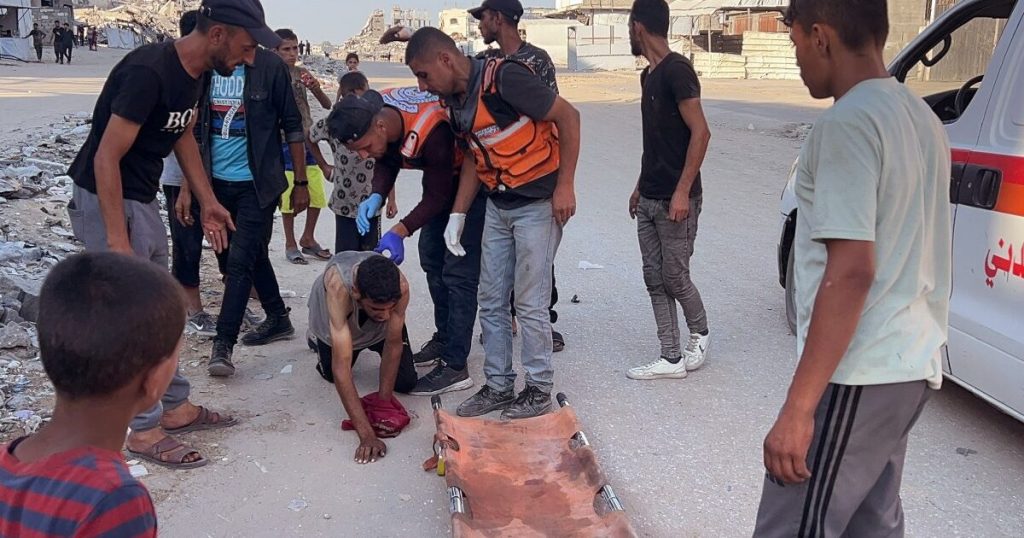The ongoing humanitarian crisis in Gaza has reached a critical juncture, with UN Secretary-General Antonio Guterres denouncing the prevailing conditions under which Gazans are forced to seek food. Guterres emphasized that the search for sustenance should not be tantamount to a death sentence, highlighting the dire situation faced by civilians in the besieged territory. While refraining from explicitly naming the Gaza Humanitarian Foundation (GHF), the organization at the center of the controversy, his remarks clearly alluded to the numerous reports of Israeli forces firing upon individuals attempting to access food aid distributed through GHF channels. Guterres unequivocally condemned any operation that directs vulnerable civilians into militarized zones, underscoring the inherent dangers and the tragic loss of life resulting from such practices.
The heart of the controversy lies in the GHF, a US- and Israeli-backed aid distribution system that has become a focal point of international criticism. Since late May, the Gaza health ministry has reported over 500 fatalities near aid centers, attributing these deaths to Israeli forces opening fire on civilians seeking essential supplies. The GHF, however, has denied these allegations, asserting that no fatal shootings have occurred in proximity to its aid distribution points. This stark discrepancy underscores the deep divisions and conflicting narratives surrounding the humanitarian crisis, further complicating efforts to provide effective and safe assistance to the beleaguered population of Gaza.
The origins of this crisis trace back to March 2024, when Israel imposed a blockade restricting the flow of essential supplies, including food, into Gaza. This blockade, lasting for over two months, exacerbated existing vulnerabilities and led to widespread concerns about the risk of famine engulfing the entire occupied Palestinian territory. The United Nations has consistently maintained that Israel’s occupation of both the West Bank and Gaza is a violation of international law, adding another layer of complexity to the already volatile situation. The blockade, coupled with the devastating impact of Israeli bombings following the October 7, 2023 Hamas attack on Israel, has left Gaza in ruins, further compounding the challenges faced by its inhabitants.
The GHF, operating under the aegis of armed US contractors and with Israeli troops stationed along its perimeter, became the primary channel for aid delivery after Israel partially lifted the blockade in late May. This arrangement, however, has been met with strong opposition from the UN and major aid organizations, who have refused to collaborate with the GHF. Their concerns stem from the perception that the organization serves Israeli military objectives and violates fundamental humanitarian principles by working directly with one party to the conflict. Critics argue that this approach compromises the neutrality and impartiality essential for effective humanitarian action, potentially placing civilians at further risk.
Guterres has called for a return to established humanitarian principles and practices, stressing the effectiveness of existing UN frameworks for aid distribution. He presented a UN-backed plan rooted in the core principles of humanity, impartiality, neutrality, and independence, emphasizing its capacity to address the urgent needs of the Gazan population. This plan, backed by existing supplies and experienced personnel, offers a viable alternative to the controversial GHF model. Guterres lamented the slow pace of aid delivery, emphasizing the need for a dramatic increase in assistance, stating that the current “trickle” must transform into an “ocean” to adequately address the scale of the crisis.
Beyond the immediate humanitarian concerns, Guterres also highlighted the broader geopolitical context, urging the international community not to overlook the plight of Palestinians amid the escalating tensions between Israel and Iran. He called for political courage to achieve a ceasefire, a critical step towards de-escalating violence and creating space for a more sustainable and just resolution to the long-standing conflict. The secretary-general’s plea serves as a stark reminder of the enduring humanitarian crisis in Gaza, underscoring the urgent need for a coordinated and principled international response to alleviate suffering and protect the lives and dignity of the Palestinian people.


